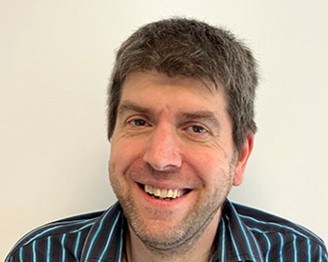

This Neurodiversity Pride Day we asked one of our CIHT EDI (Equality, Diversity & Inclusion) Advocates the questions that the sector needs answered. A must-read, their insight and honest responses provide inspiration and clear guidance for individuals, organisations and the sector as a whole to act on.
Join other savvy professionals just like you at CIHT. We are committed to fulfilling your professional development needs throughout your career
Neurodiversity Pride Day is a worldwide initiative that challenges stereotypes and misconceptions about neurological differences. It aims to transform how neurodivergent individuals are perceived, presenting the opportunity to recognise the achievements of neurodivergent professionals, while creating more inclusive and equitable cultures.Neurodiversity Pride Day is a worldwide initiative that challenges stereotypes and misconceptions about neurological differences. It aims to transform how neurodivergent individuals are perceived, presenting the opportunity to recognise the achievements of neurodivergent professionals, while creating more inclusive and equitable cultures.
Martin is a UK-based Principal Geotechnical Engineer with the international multidisciplinary consultancy GHD based in their London office. He is neurodivergent (autistic, dyslexic, dyspraxic) and visually impaired.
Martin’s 20+ years of professional experience has been working for UK-based international consultancies on ground engineering projects. He specializes in ground risk and uncertainty and works on geotechnical engineering aspects for international and national projects from desk study to closure. He is a Chartered Engineer, Fellow of The Institute of Materials, Minerals & Mining, a Chartered Geologist, a European Geologist and a Fellow of the Institute of Diversity and Equality Professionals.

Martin Griffin - Principal Geotechnical Engineer, GHD
My passion for ground engineering stemmed from as a kid, when I started collecting minerals and rock samples and designing Lego mega-structures in my bedroom. Now, in my early 50s, I am living my dream, working for an international multidisciplinary consultancy, providing innovative and robust solutions.
Before I graduated in 1995 in engineering geology / geotechnical engineering, I was one who thought this career route was impossible for me. I started my working life as a laboratory technician with failed exams and then entered university by the back door (aka obtaining a HND), a lot of hard work and culminating with an ex-boss who said I thought too much and asking too many questions.
Daily, I really enjoy the variety of tasks associated with my role and every project is unique. I love applying my acquired technical knowledge to solve real problems as part of projects. Working in an active team as a consultant, enables me to be involved in the interaction of the dynamic environment, with humans and engineering robust sustainable solutions.
What Neurodiversity Pride Day means to me professionally - it is a day to celebrate diversity and the uniqueness each of us brings to the workplace. In my field, working in a technical team, my colleagues possess vastly different backgrounds regarding education, professional experience, age, technical ability, and ethnicity.
It is an understatement to say that the range of skills is diverse to say the least! This does not mean, however, that any one skill set or experience trumps another.
In the same way, a very technical person with more of a focus on analysis may skip the small talk but ask the exact questions to ensure a major problem is solved efficiently and promptly, then bravo, you may have saved our client thousands of pounds.
I have always been open about my neurodivergence (dyslexia, dyspraxia and autism) at work because it has always been known to many. It is also very hard for me to hide my neurodivergence due my emotional deregulation and being honest, it would become more stressful for me to be inauthentic at work and living a double life. By sharing about my neurodivergence with my employees (past and present), it has been easier to talk about reasonable adjustments and the support I need.
I have a several neurotypical mentors in my career, ones that have stood out the most are ones who challenged their own bias, they were ego-less, emotionally intelligent and treated me an equal engineer. They took time to listen to my story, my experiences (good and bad), and created genuine opportunities for me to thrive in the workplace.
Listen to our personal stories from newbies to managers; these are all are powerful actions in the workplace. These send a powerful message. They could include their own experiences of neurodivergence in the workplace, what has helped them, and the challenges they have overcome.
There is still a lack of representation in higher positions, making it difficult for future generations of employees to envision themselves in those roles, reducing the likelihood of them applying for promotions and remaining in the sector.
Openly neurodivergent employees do not see themselves represented in STEM, many may internalize that such careers are not made for them. When people of an underrepresented group do not see themselves in our sector, they likely learn similar messages too. When managers and senior leadership members are open about their neurodivergence, it creates an environment where employees and prospective employees feel comfortable bringing their whole selves to work.
We are different, not less. Because we may often behave differently, or not look like you, we think, process information often in different ways, we are still capable of making valuable contributions to workplaces, projects and society.
The opinions expressed are those of the author. They do not purport to reflect the opinions or views of the CIHT or its members. Neither the CIHT nor any person acting on their behalf may be held responsible for the use which may be made of the information contained therein.
Join other savvy professionals just like you at CIHT. We are committed to fulfilling your professional development needs throughout your career
{{item.AuthorName}} {{item.AuthorName}} says on {{item.DateFormattedString}}: